How China-Russian Partnership Could Counter-Balance Negative Effects of Western Sanctions
17:28 GMT 28.02.2022 (Updated: 08:57 GMT 15.11.2022)
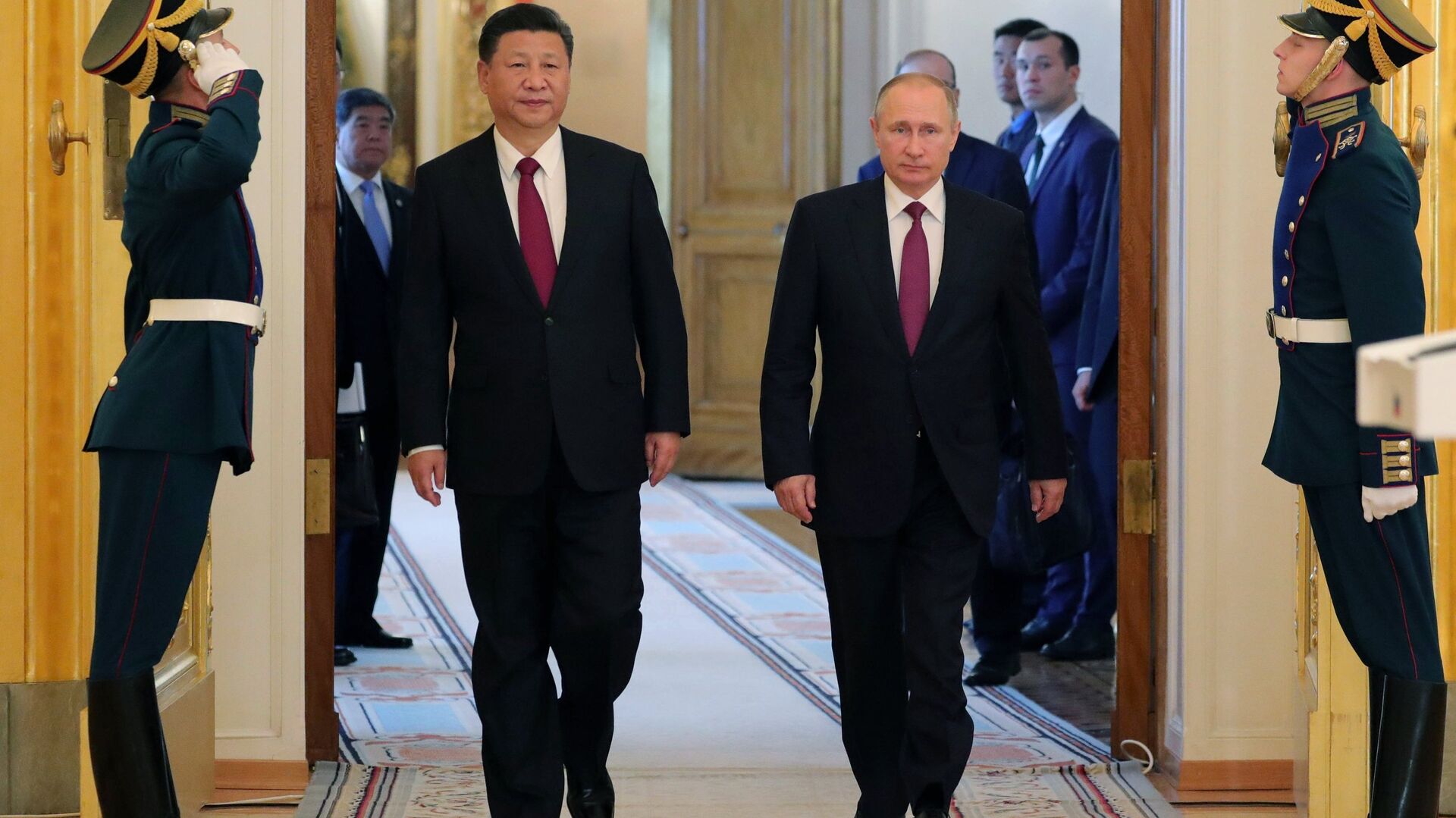
© Sputnik / Michael Klimentyev
/ Subscribe
China opposed the West's unilateral sanctions against Russia and barred the SWIFT ban, saying that it has no basis in international law. The FT admitted that Beijing could reduce the pressure of the restrictions by bolstering Russo-Chinese mutually beneficial cooperation in agriculture, hi-tech, banking, energy, and other economic sectors.
"China-Russia ties are strengthening constantly during the last 10 years and more in every sector already. So these events in the turmoil with Ukraine that actually is the turmoil between Russia and the US-NATO system will surely accelerate the further cooperation between China and Russia," says Fabio Massimo Parenti, associate professor of international political economy and global studies at China Foreign Affairs University and the Italian International Institute Lorenzo de’Medici.
China's General Administration of Customs on 23 February confirmed that it would scrap import restrictions on wheat from Russia. Previously, Reuters reported on 4 February that Beijing had lifted the import bans on Russian wheat and barley as part of a broader series of new bilateral deals. The package also included Russia's long-term oil and gas supplies to the People's Republic worth $117.5 billion, according to the media outlet.
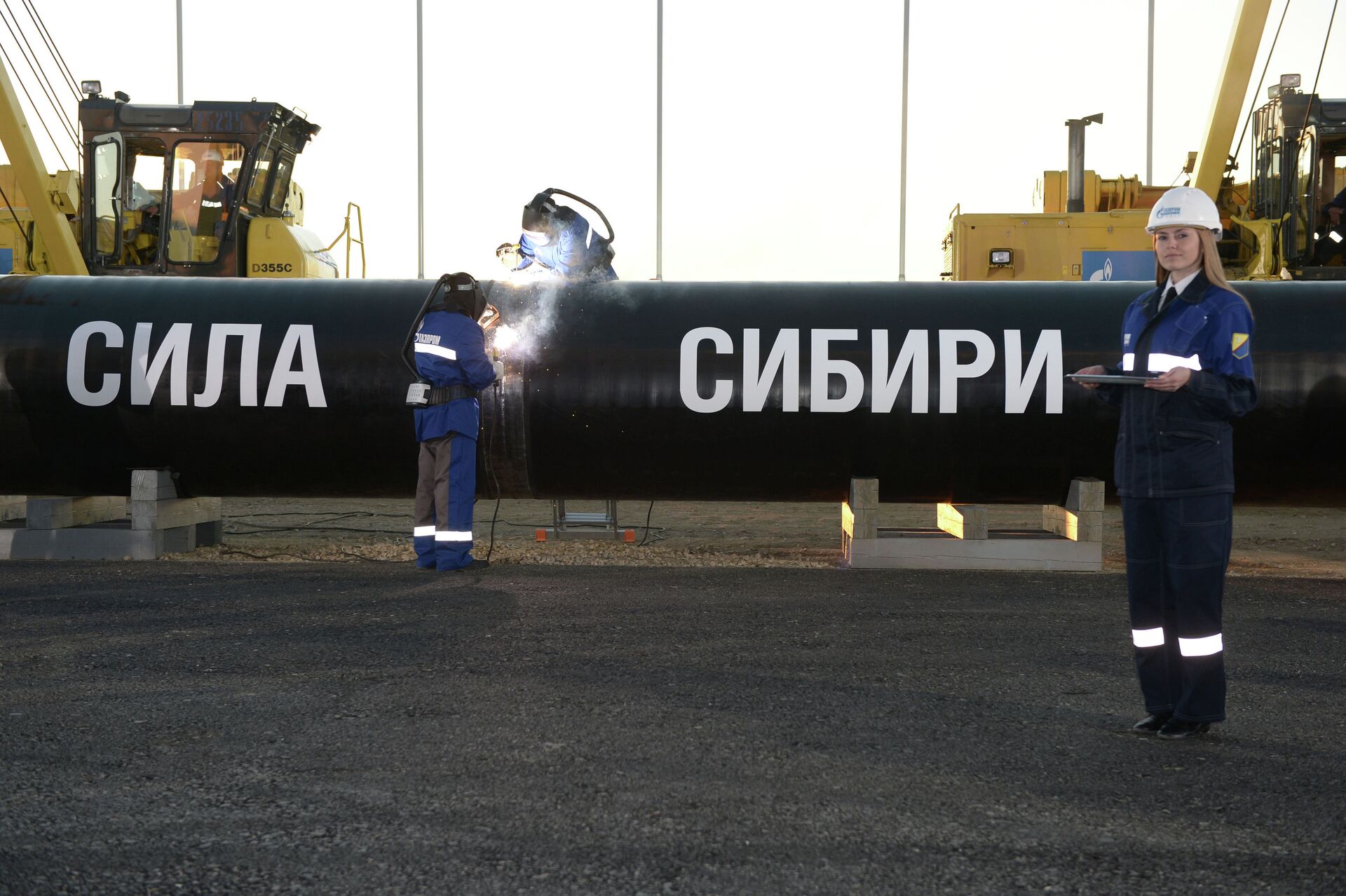
Vladimir Putin's working visit to Far Eastern Federal District
© Sputnik / Aleksey Nikolskyi
/ "I think that European countries and also other food exporters, not only food services and goods exports towards China, will be affected, but currently not so much," Parenti remarks.
He places special emphasis on the Russo-Chinese energy deal, stressing that Russia's oil and gas are crucial for China's growing demand. The People's Republic is projected to consume up to 526 billion cubic metres (bcm) by 2030 and approximately 620 bcm by 2040.
Meanwhile, Russian commodities and raw materials are likely to be redirected to China if the demand from the rest of the world drops significantly against the backdrop of geopolitical tensions, according to economic experts quoted by CNN. The FT notes that Beijing has a record of providing economic support to Moscow during Russia's standoffs with the West which has stepped up sanctions against Moscow since Crimea's reunification with the nation in 2014.
"This is the key issue about the process of a global shift, the reconfiguration of the global order that has been going on during the last decades," says Parenti. "In the 1990s, actually, the US-NATO system imposed and consolidated a unilateral world order, a unipolar world order in its power configuration. But towards the end of the nineties, we saw new growth and development, partly by China, and after the rapprochement of China-Russia cooperation and relations, the world and the world system started to change rapidly."
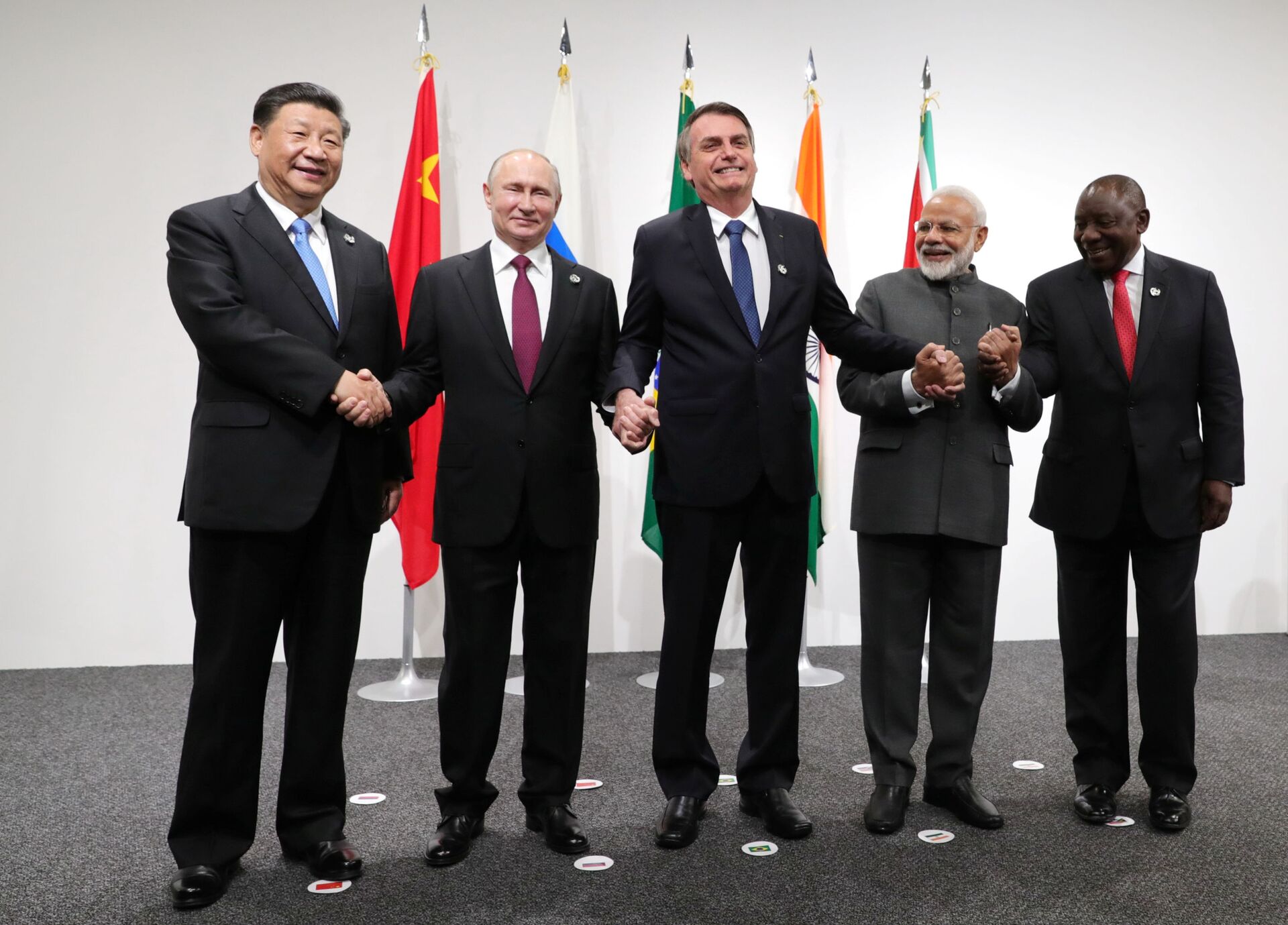
Russia's President Vladimir Putin (2nd L), Brazil's President Jair Bolsonaro (C), India's Prime Minister Narendra Modi (2nd R), China’s President Xi Jinping (L) and South Africa's President Cyril Ramaphosa pose for a picture during the BRICS summit in Osaka, Japan June 28, 2019
© Sputnik / Alexey Nikolsky
Global Economy is Changing in Favour of Developing Countries
The global economy has already changed radically and in material terms in favour of the emerging countries, while the US and its allies were striving to contain this rise by cutting the economic linkages, above all between the European Union and other Eurasian partners, according to the professor.
"The unilateral movement of US expansion has created the constant destabilisation process since the wars in former Yugoslavia, above all from the war against Serbia until the Syrian war, the US system has created an arc of destabilisation, supporting jihadists and supporting terrorist activities in order to create problems in Central Asia, in order to create problems in China, in order to create problems in Eastern Europe," Parenti says. "In Ukraine, we know of the state coup during 2014 and the first attempt in 2005 of the Orange Revolution to destabilise and to annex the Ukrainian land and space within and under the control of the US-NATO system."
Washington's assertive actions facilitated the rapprochement between Moscow and Beijing. Beijing understands that the US' attempts to separate Russia from Europe is "the precondition to work better in Asia-Pacific against China, provoking Taiwan, provoking Hong Kong, provoking the South China Sea issues and so on," according to the professor.
"China knows that supporting Russia is an existential need for itself as well, not only for friendship with Russia, but above all for its own existential threat: that they are living equally in confronting NATO's forces, driven exclusively prevalently by the United States and its own domination project," says Parenti.
Hence, Beijing's well-articulated position against the latest package of sanctions slapped by the EU, the UK, the US and Canada on Russia, according to him. Last week, Hua Chunying, a Chinese foreign ministry spokesperson told reporters in Beijing that "since 2011, the US has imposed more than 100 sanctions on Russia," but these restrictions had done nothing to dispel tensions in Europe. Hua denounced Washington as the “culprit” in the Ukraine crisis, who is "heightening tensions, creating panic and even hyping up the possibility of warfare."
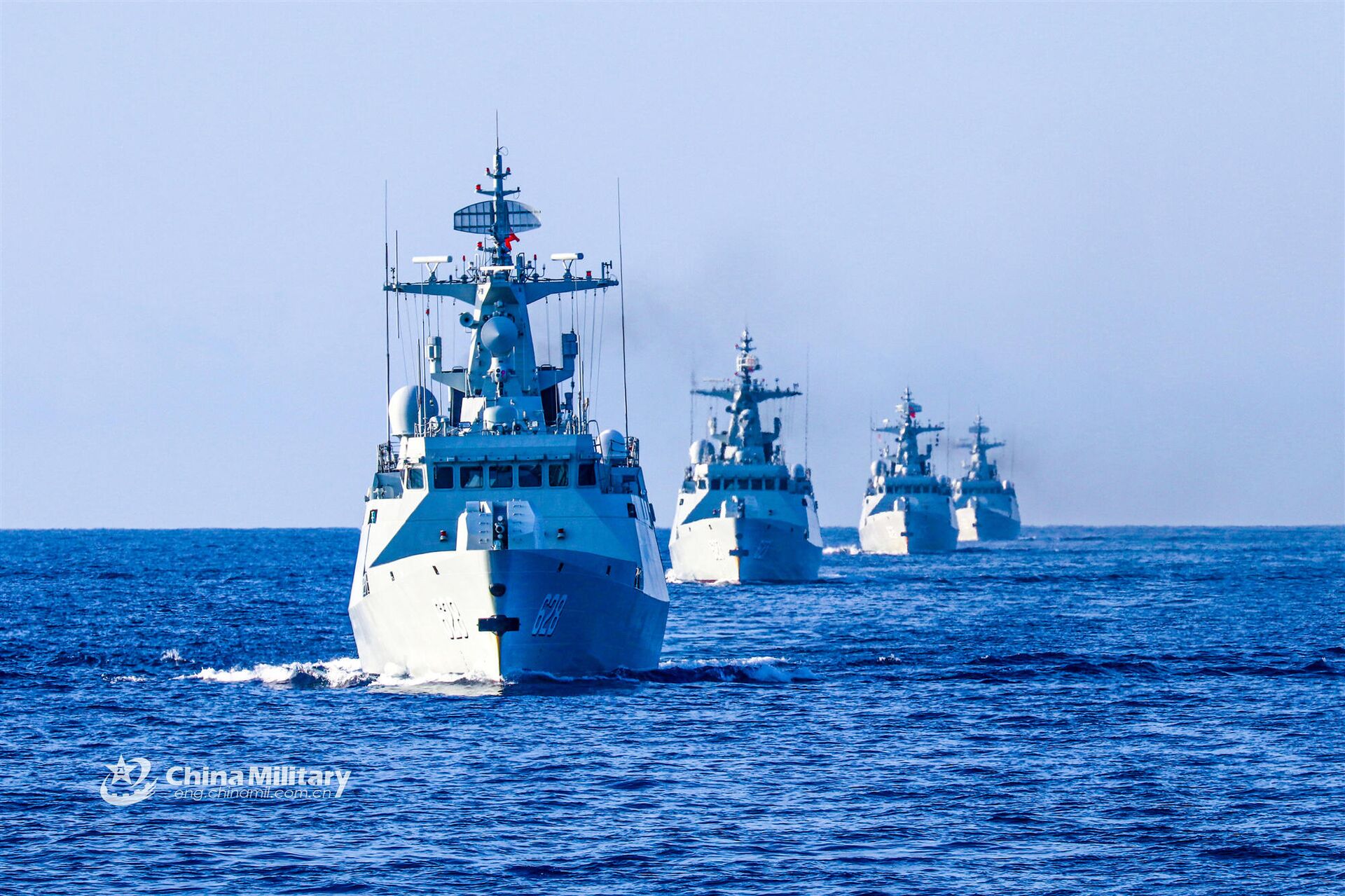
The frigate Enshi (Hull 627), Yongzhou (Hull 628), Bazhong (Hull 625), and Wuzhou (Hull 626) steam in formation during a 9-day maritime training exercise in waters of the South China Sea in late November, 2020. They are attached to a frigate flotilla of the navy under the PLA Southern Theater Command.
Counter-Hegemonic Bloc
"We have to see the real and actual application of these announced sanctions, such as holding Russia outside of the SWIFT system," says Parenti, adding that China and Russia have created their own cross-border payment system using alternative currencies since 2014 and 2015.
According to the professor, the two countries have also been maintaining joint economic projects for years which are likely to soften or counter-balance the negative consequences of the Western sanctions.
At the same time, Moscow and Beijing have common interests in various parts of the world, including Latin America, the Middle East, and Africa, the academic notes. Parenti singles out Iran that struck a 25-year cooperation agreement with China on 27 March 2021. "The trilateral relationship between Russia and China and Iran" translated into a "counter-hegemonic bloc, even though it was not the intention of these three powers," according to him.
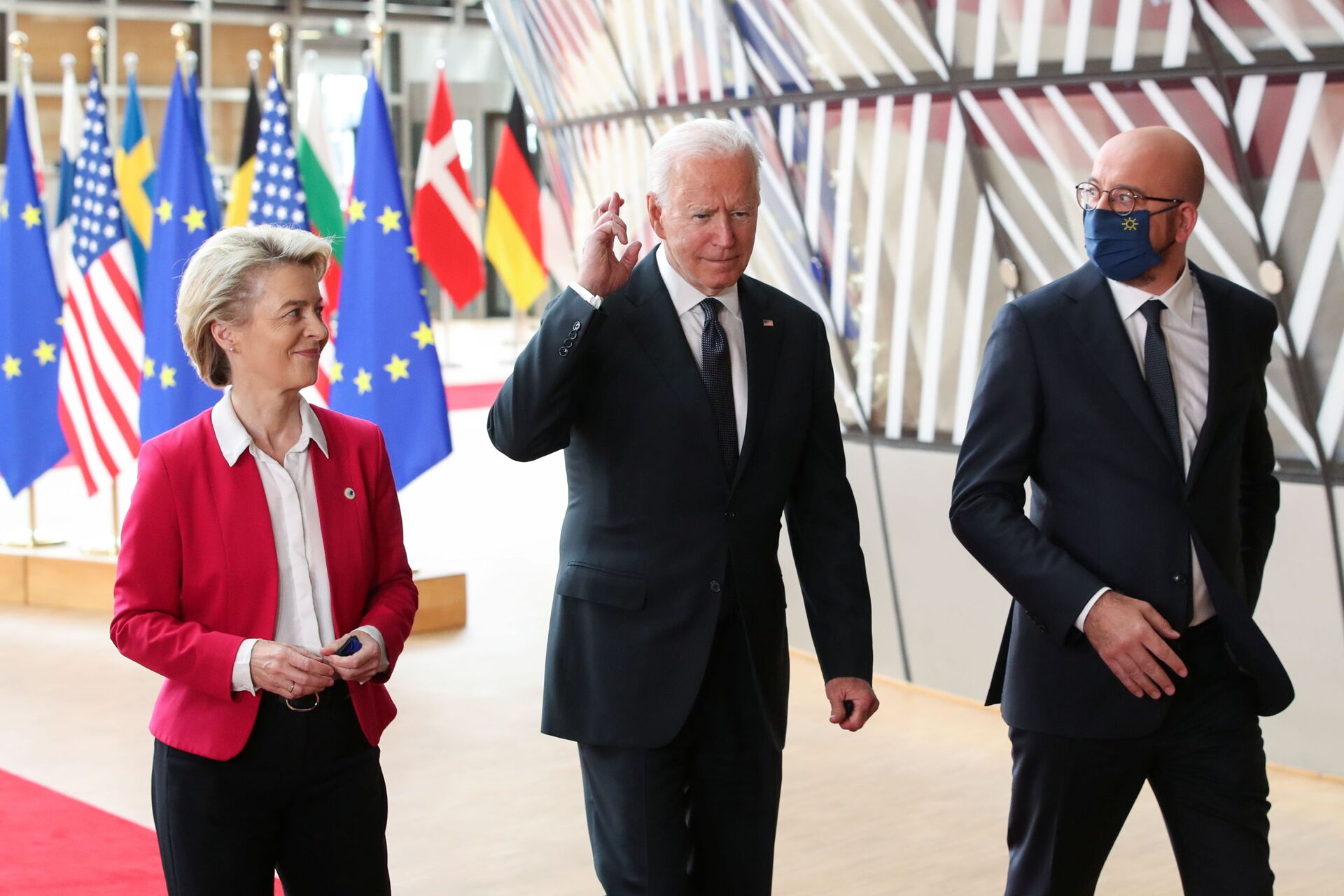
European Council President Charles Michel and European Commission President Ursula von der Leyen take part in the EU-US summit with U.S. President Joe Biden, in Brussels, Belgium June 15, 2021.
© REUTERS / YVES HERMAN
"At the end of the day, Europe will suffer, will be one of the main parties suffering in this battle, because of the lack of independence, because of that subordination to United States interests that do not match anymore with the interests of Europe," says the academic. "Obviously, repercussions will spread around the world and also Russia and China will have their own problems. But the networks were built in the last 20 years."
Parenti does not rule out that Russo-Chinese efforts to ensure security in the new multi-polar world would translate into a military alliance. Increasing pressure from NATO is prompting the countries to bolster their defences and review their security strategies.
"Russia now chose the military leverage because of this pressure that was increasing - not only the support of reactionary forces in Kiev, but also by NATO and it became very dangerous, that already killed and divided the country during the last 10 years," the academic says. "The threat of having nuclear weapons and NATO's installation directly on the borders with Russia: this was a red line overcome in this dirty game played by the United States that I understand were studying this fact for a long time? That was the overcoming of the red line."



